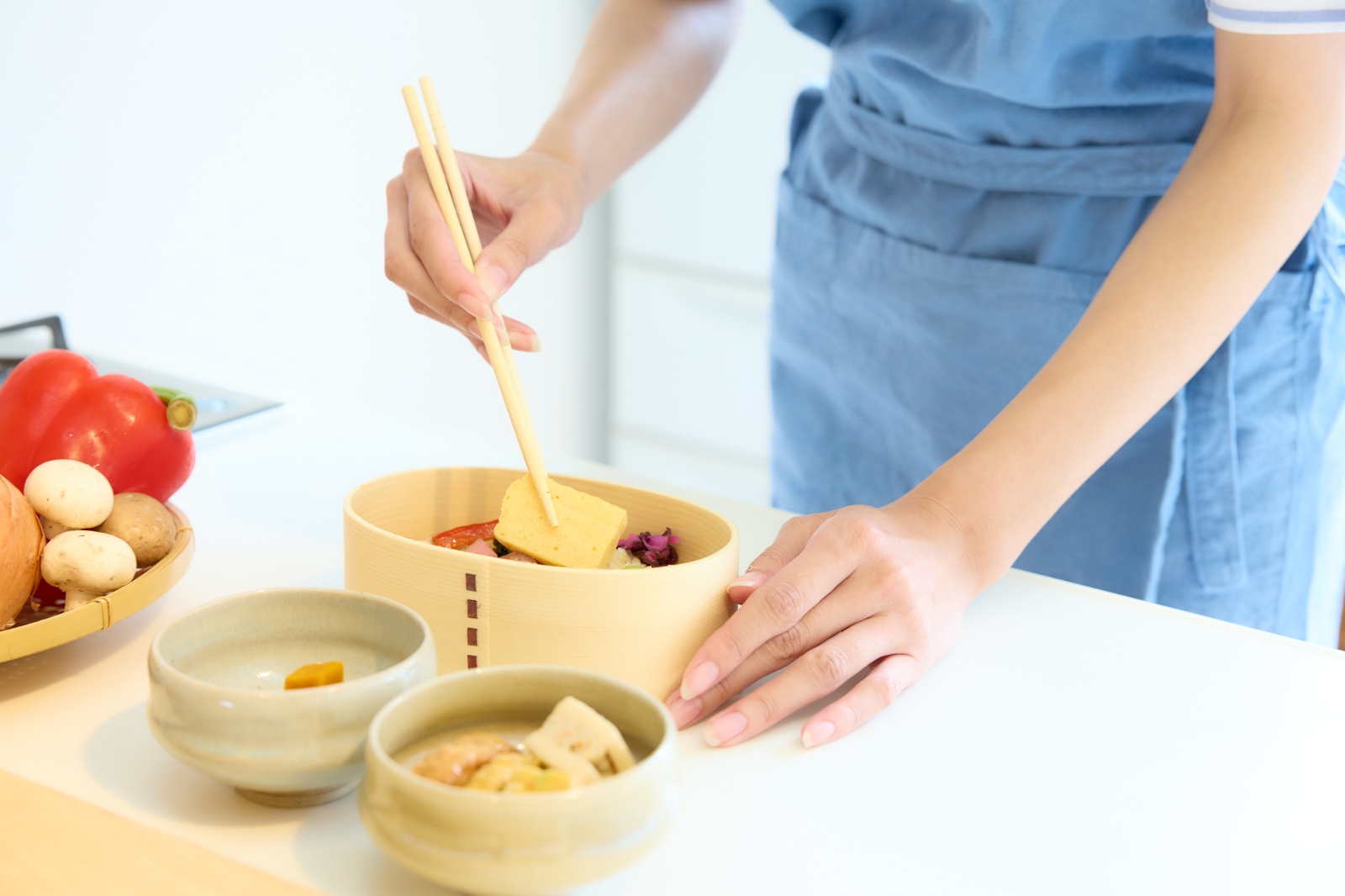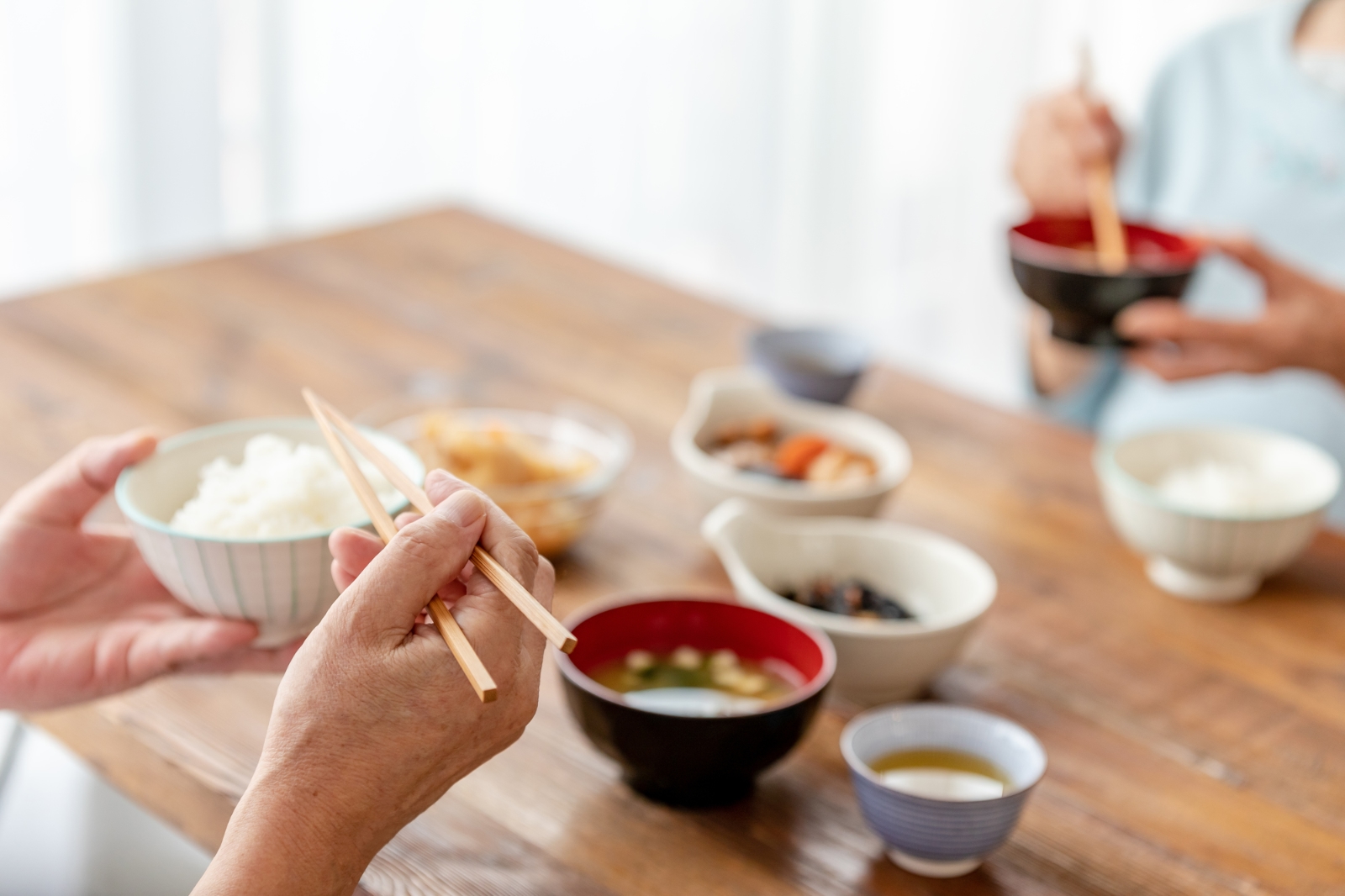“When did you move to Japan?” may seem like an odd question to ask a patient seeking weight loss advice. But in my experience as a dietitian in Tokyo, moving overseas is the root cause of many of my patients’ weight gain issues. When combined with the stress of moving across the world and an unfamiliar food environment, it’s no surprise that the transition to life in Japan is a catalyst for weight gain.
While I avoid focusing solely on weight as a measure of health, weight gain after moving is often related to issues with diet quality, food access, and your relationship with food.
Whether the scales change after you move or not, below are my top tips to help new residents improve their eating habits and find sustainable solutions to nutritional issues.
Problem 1: Eating out for all your meals
caption. Image: yamasan/Pixta
For foodies, moving to Japan may seem like a dream come true at first.
From cheap and delicious street food to the most Michelin-starred restaurants in the world, the options for delicious food are dizzying. But this abundance of choice can sometimes cause problems for some of my patients. The urge to eat out and try every delicious new food is overwhelming, and some of my patients end up doing just that with every meal.
While I support the idea of exploring Japanese cuisine, it’s difficult to get enough fruits, vegetables, whole grains, and other nutritious foods when eating out all the time. While some restaurants offer healthier options, most diners prefer fried foods, sugary foods, and less nutritious foods.
Solution:
First, I encourage my patients to ensure that all foods fit into a balanced diet and not take the extreme approach of banning all restaurant foods, as this will only make them feel overly restricted and will usually lead to overeating in the long term.
Instead, we work together to find a better balance between eating out and eating in. To do this, we often talk about easy, nutritious meals that we can make quickly at home.
If cooking at home isn’t practical, discuss nutritious options at restaurants, or restaurants that serve healthier dishes. Through these approaches, you can create a balance of meals that meet your needs for both enjoyment and better nutrition.
Problem 2: Not used to the Japanese food environment


caption. Image: Arayashiki/Pixta
[Image, caption]
While some people look forward to trying local cuisine when they come to Japan, others are less enthusiastic and feel overwhelmed. Walking through a local grocery store can be frustrating, as they don’t know what to buy or where to find the foods they are used to eating. While there are international grocery stores in larger cities, these can be expensive and inconvenient. As a result, some patients may give up trying to understand the local cuisine and resort to eating basic unbalanced meals or fast food.
Solution:
Although it takes effort and a sense of adventure, it’s easier than ever to learn the basics of Japanese home cooking. In addition to cooking videos on YouTube, I often The only cookbook On her website and in her e-books, author Namiko Hirasawa writes recipes and instructions that are very easy for foreigners to understand, explaining Japanese cooking methods, kitchen tools, and ingredients in an easy-to-understand way.
In addition to learning about local foods, I encourage my patients to look for recipes that use ingredients available in their home country. For example, by searching websites for recipes that use ingredients like rice, salmon, and eggplant, you may find a recipe that works well with the ingredients available here. The results may not be the same as they would have back home, but they often turn out better than expected.
Problem 3: It’s hard to control your portions


caption. Image: y.uemura/Pixta
When people eat, they use several cues to determine how much food they need. These cues can be external, such as the portion sizes of food served, reading nutrition labels to get calorie information, or imitating the eating habits of those around them. This means that for people who rely on external cues, moving to a new country where they cannot read food labels or know portion sizes can create anxiety and lead to overeating or undereating.
Solution:
While it’s OK to use external cues to regulate your food intake, it’s important to learn to use your internal hunger cues.
Ancient Japanese wisdom also supports this idea: Eight-tenths fullThis traditional practice, which roughly translates to “eat until you’re 80% full,” is used by Japanese people to remind themselves to pay attention to their body’s hunger and fullness signals and stop eating before they feel full. The concept is particularly popular in Okinawa, where the island’s residents are renowned for their long life spans and low rates of obesity and chronic disease.
With this in mind, I help my patients become more intuitive eaters.
As they become more mindful of their food intake, many patients are shocked to realize how often they eat beyond their ideal fullness levels because they are bored, busy, or distracted. Trusting your body to regulate your food intake can take time, but embracing the traditional wisdom of eating only until you are 80% full can help you develop a healthy, balanced relationship with food.
It may be difficult at first, but with the right knowledge, resources, and support, it is possible to maintain a healthy weight and eating habits after moving to Japan. Combining the strategies above with a positive mindset will help you enjoy all that Japan has to offer while supporting your health and nutrition.
Victoria Lindsay, MS RD, is a Registered Dietitian and Nutrition Consultant working at Tokyo Medical & Surgical Clinic and in private practice based in Tokyo.: About This Site.
© Japan Today

